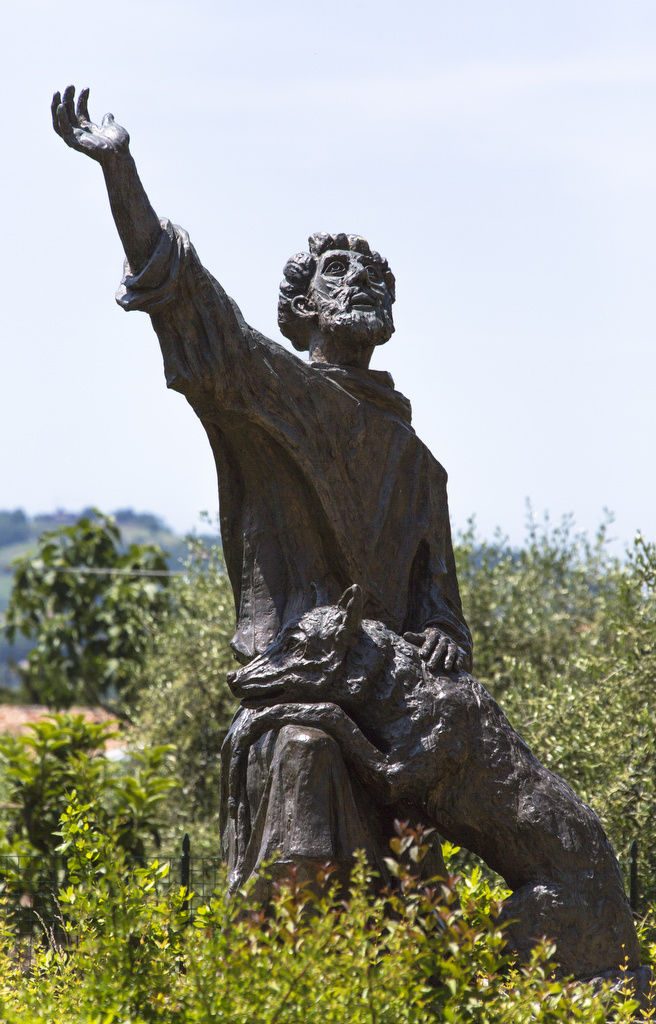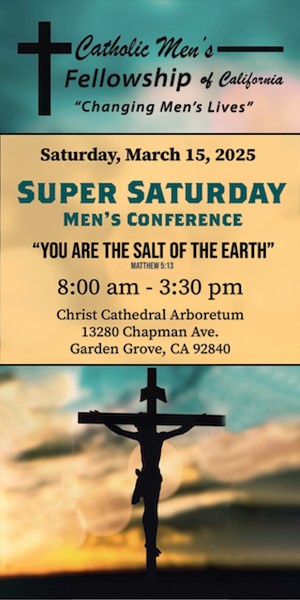Like many of you, I have been looking forward to Pope Francis’ new encyclical letter on the care of creation.
Last night as I was thinking about this column, I finally received my copy of Laudato Si’ (“Praised Be”), which takes its title from St. Francis of Assisi’s great hymn to the earth as our common home.
Laudato Si’ is a long document — more than 100 pages — and I have just had time to read it once. So I can only offer here my first impressions.
Most of the focus in the mainstream media has been on the pope’s “position” on issues that are controversial in our politics.
And his letter does contain important and strong considerations on such issues as climate change, the disappearance of plant and animal species, the culture of waste and consumer lifestyles, and the global inequalities of wealth and access to resources.
These passages of the encyclical deserve careful rereading. But what strikes me on my first read of the encyclical is the sense of urgency and the personal tone. Laudato Si’ is not so much a work of politics or economics — it is a moral and spiritual reflection on our times.
The pope roots his reflections in the reality that all creation and every created thing shares a Creator.
“The best way to restore men and women to their rightful place, putting an end to their claim to absolute dominion over the earth, is to speak once more of the figure of a Father who creates and who alone owns the world,” the pope writes. “Otherwise, human beings will always try to impose their own laws and interests on reality.”
In God’s design, Pope Francis writes, the world and everything in the natural order is the work of his love.
“God’s love is the fundamental moving force in all created things. … Every creature is thus the object of the Father’s tenderness, who gives it its place in the world. Even the fleeting life of the least of beings is the object of his love, and in its few seconds of existence, God enfolds it with his affection.”
Often in Laudato Si’, we find the Pope writing in a poetic and even mystical tone. He tells us: “The entire material universe speaks of God’s love, his boundless affection for us. Soil, water, mountains: everything is, as it were, a caress of God.”
Pope Francis reminds us that the human person is at the center of God’s plan for creation — created in God’s image and “possessing a particular dignity above other creatures.”
While he accepts the scientific theory of evolution, he refuses any attempts to “reduce” men and women to mere products of natural processes. There is something greater in the human person, something sacred.
“Our capacity to reason, to develop arguments, to be inventive, to interpret reality and to create art, along with other not yet discovered capacities, are signs of a uniqueness that transcends the spheres of physics and biology,” he writes. “The sheer novelty involved in the emergence of a personal being within a material universe presupposes a direct action of God and a particular call to life and to relationship on the part of a ‘Thou’ who addresses himself to another ‘thou.’”
The “human ecology” and the family are important to Pope Francis’ vision.
He rejects those who would pit environmental concerns against human needs. He criticizes “cultural relativism” and “an obsession with denying any pre-eminence to the human person; more zeal is shown in protecting other species than in defending the dignity which all human beings share in equal measure.”
He has strong words to condemn those who propose birth control and abortion as solutions to environmental problems.
International policies that promote population control only serve to reinforce economic injustice and environmental degradation, he writes:
“To blame population growth instead of extreme and selective consumerism on the part of some is … an attempt to legitimize the present model of distribution, where a minority believes that it has the right to consume in a way which can never be universalized, since the planet could not even contain the waste products of such consumption.”
On abortion he writes: “Since everything is interrelated … how can we genuinely teach the importance of concern for other vulnerable beings, however troublesome or inconvenient they may be, if we fail to protect a human embryo, even when its presence is uncomfortable and creates difficulties?”
Again and again, the pope returns to what has become a key theme in his pontificate — the need to restore our sense of responsibility for others:
“We must regain the conviction that we need one another, that we have a shared responsibility for others and the world, and that being good and decent are worth it,” he insists.
As an antidote to consumer lifestyles and the culture of waste, Pope Francis proposes Christian spirituality. Our faith, he says leads to a lifestyle — “an attitude of the heart” — that is marked by moderation, humility and gratitude; that finds happiness in the little things in life and “accepts each moment as a gift from God to be lived to the full.”
Pope Francis proposes the example of the saints. Not only St. Francis, his namesake and the inspiration for his new letter, but also St. Thérèse of Lisieux and her “little way of love — not to miss out on a kind word, a smile or any small gesture which sows peace and friendship.”
The pope appeals to all of us to return — as individuals and families — to the practice of giving thanks to God before and after every meal.
“That moment of blessing, however brief, reminds us of our dependence on God for life; it strengthens our feeling of gratitude for the gifts of creation; it acknowledges those who by their labors provide us with these goods; and it reaffirms our solidarity with those in greatest need,” he writes.
The pope closes his letter with a beautiful reflection on the sacraments as the gateway to rediscovering a new relationship with creation and the elements of the natural world.
“It is in the Eucharist that all that has been created finds its greatest exaltation,” he writes. “Grace, which tends to manifest itself tangibly, found unsurpassable expression when God himself became man and gave himself as food for his creatures. The Lord, in the culmination of the mystery of the Incarnation, chose to reach our intimate depths through a fragment of matter. He comes not from above, but from within, he comes that we might find him in this world of ours.”
There is much more to say about Laudato Si’. I hope to continue this reflection next week in my column.
So let us pray for one another this week.
And let us ask Mary, the Queen of all Creation, to help us to discover the living God in the gifts of his creation, and to serve him above all in the person of the poor and the vulnerable.

